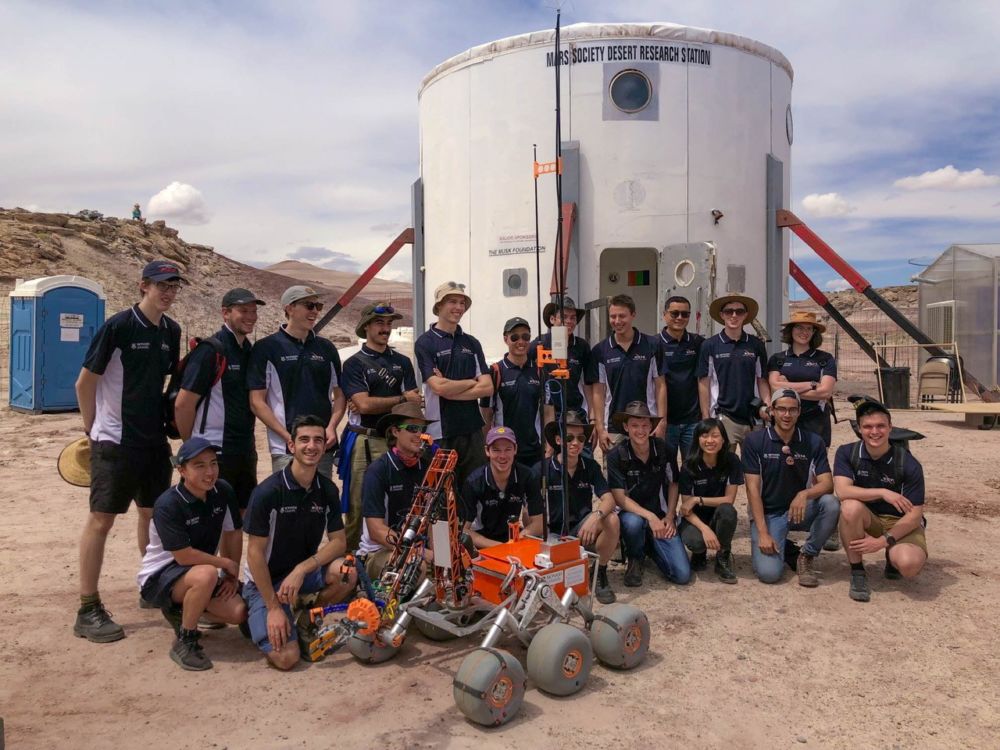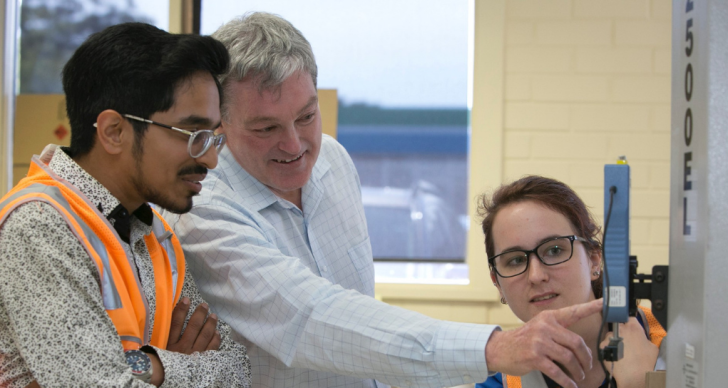According to Cambridge International’s latest survey looking at what students do after studying for Cambridge qualifications, engineering remains the most popular choice for Cambridge students to study at university.
So what do students, parents, and teachers need to know about choosing a great engineering undergraduate degree?
I believe that engineering is for the kids who demand more. Who pull apart their toys and get their fingers stuck in drains, who use their coloured pencils to design the future instead of colouring within the lines. Engineering is the application of deliberate, creative and skillful design by curious optimists.
However, many young women still think that engineering is not for them. Sadly, engineering hasn’t matched the gender equity gains of other disciplines. Women outnumber men in a variety of medical, biological and health disciplines in the UK, USA and Australia, but still make up only 19 per cent, 20 per cent and 17 percent respectively in engineering.
Yet, engineering degrees lead to excellent career prospects, with demand from both the ‘traditional’ engineering industries such as construction and mining, as well as other professional industries such as banking, law, and education. Engineering jobs are no longer just about building bridges, they are also now focused on providing technical solutions to complex problems including climate change, supply chain automation, and sustainable development.
If we are to build a fairer, cleaner world for everyone, we need everyone’s contribution – we simply cannot afford to leave out 50 percent of the population.
Moreover, employers now recognise that diversity can give them a competitive edge, with mounting evidence proving that diversity leads to better decisions and innovation. In Australia, female engineers now attract higher graduate starting salaries than their male colleagues.
At Monash Engineering, we have committed to reaching 50:50 gender balance in enrolments by 2024. It is the most ambitious gender equity target in Australia and fitting for the country’s top-rated engineering faculty.
So how can we invite and inspire more young women to become engineers?
Choose the right A Levels
Young women are highly capable in maths and physics, and at Monash, we invite them to discover their power as creative tools ready for use in designing a better world. We find that students coming from programs that emphasise practical, as well as theoretical activities and assessments, come well-equipped to do so. Participation in applied science activities gives these students excellent grounding and preparation for the challenges of our engineering undergraduate degree. We find that students who’ve completed Cambridge International A Levels generally perform well in our program as a result.
Double degrees
Double degree study options give students the best opportunity to explore the breadth of their talents, interests, and potential. At Monash, many of our undergraduate engineering students complement and strengthen their studies with degrees in Law, Arts, Commerce, Architectural Design, Science or Information Technology, creating broader opportunities to explore their career interests and potential. These dual-qualified engineers are particularly well placed to work in interdisciplinary teams and solve complex multi-disciplinary problems. Double degrees are particularly popular with young women who are looking to balance their broader interests.
Inquiry-based learning
Don’t spend four years passively consuming existing knowledge! Make sure your engineering degree offers opportunities for inquiry-based learning in both practice and research. At Monash, student teams such as Nova Rover and Monash Motorsport allow undergraduates the chance to compete in prestigious national and international engineering design competitions. Also, work-based internships are crucial to developing work-ready, international and entrepreneurial graduates. Plus, the opportunity to try out research projects in a lab setting is also important, as it offers an exciting and meaningful way to practice new skills and develop new ideas while advancing human knowledge – and acts as a great headstart for students interested in a research career.

Diversity
An engineering undergraduate course with a clear commitment to all forms of diversity, particularly gender and cultural diversity, is also a must. Undergraduate courses should openly invite and encourage the inclusion of those who think and experience the world differently, particularly the fifty percent of the population who identify as female. The jobs of the future will expect graduates to work with cultural fluency, and to adapt easily to conditions anywhere in the world. If students can experience the world’s diversity from within their classroom first, they’ll be well equipped to practice as global engineers. Given the international approach of the Cambridge curriculum, recognised by universities and employers worldwide, their A Levels program aligns with this philosophy well.
If an engineering undergraduate degree doesn’t incorporate these key factors, or clearly invite and encourage young women to enrol, then they’re not attuned to the future of the workforce. One that does will fully prepare students for a rewarding, future-proof career in engineering.
Contact Professor Elizabeth Croft through LinkedIn or find out more about studying Engineering at Monash University through our International School Counsellors Hub





